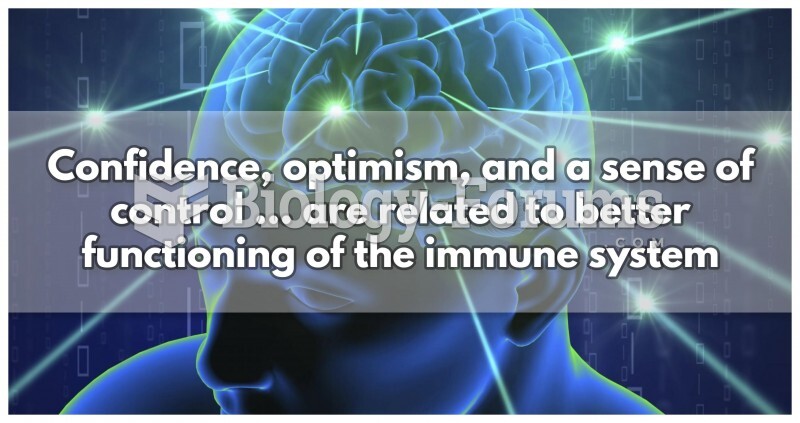|
|
|
Most strokes are caused when blood clots move to a blood vessel in the brain and block blood flow to that area. Thrombolytic therapy can be used to dissolve the clot quickly. If given within 3 hours of the first stroke symptoms, this therapy can help limit stroke damage and disability.
Opium has influenced much of the world's most popular literature. The following authors were all opium users, of varying degrees: Lewis Carroll, Charles, Dickens, Arthur Conan Doyle, and Oscar Wilde.
It is believed that the Incas used anesthesia. Evidence supports the theory that shamans chewed cocoa leaves and drilled holes into the heads of patients (letting evil spirits escape), spitting into the wounds they made. The mixture of cocaine, saliva, and resin numbed the site enough to allow hours of drilling.
Cytomegalovirus affects nearly the same amount of newborns every year as Down syndrome.
The toxic levels for lithium carbonate are close to the therapeutic levels. Signs of toxicity include fine hand tremor, polyuria, mild thirst, nausea, general discomfort, diarrhea, vomiting, drowsiness, muscular weakness, lack of coordination, ataxia, giddiness, tinnitus, and blurred vision.
 Common skin signs are often evidence of an illness or disorder. An erosion or ulcer is an eating or ...
Common skin signs are often evidence of an illness or disorder. An erosion or ulcer is an eating or ...
 Common skin signs are often evidence of an illness or disorder. A vesicle is a small fluid filled ...
Common skin signs are often evidence of an illness or disorder. A vesicle is a small fluid filled ...





